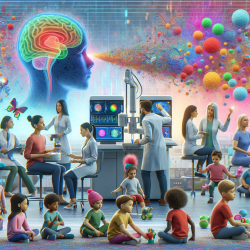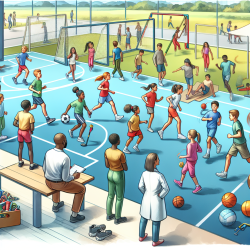Stuttering is a complex speech disorder that has puzzled speech therapists and researchers for decades. The journey to understand its roots and develop effective interventions is ongoing. A pivotal piece of this puzzle is the discussion around the neurologic theories of stuttering, as contrasted with the perspectives from the Iowa School. This blog aims to delve into these theories, exploring how an understanding of stuttering as a neuromotor deficiency can enrich clinical practice and encourage further research in the field.
The commentary on "Iowa School and Neurologic Theories of Stuttering" by Luc F. De Nil offers a comprehensive critique and insight into the ongoing debate on the nature of stuttering. De Nil agrees with the premise that stuttering is best understood as a neuromotor deficiency affecting speech fluency. However, he raises concerns about the oversimplification of stuttering as merely a "simple neural incoordination for speech," highlighting the intricate interplay of neural, cognitive, emotional, and environmental factors in stuttering.
Understanding stuttering from an interactionistic perspective, which considers the myriad of contributing factors, can significantly impact clinical practice. Here are several ways practitioners can implement outcomes from the research or pursue further exploration:
- Comprehensive Assessment: Clinicians should adopt a holistic approach to assessing stuttering, considering not just the speech disfluencies but also the underlying neuromotor aspects, cognitive functions, emotional state, and environmental influences.
- Individualized Therapy Plans: Recognizing the heterogeneous nature of stuttering, therapy should be tailored to address the specific needs of each individual, taking into account the various internal and external factors that may influence stuttering.
- Parental Involvement: The environment plays a crucial role in the development and maintenance of stuttering. Educating parents on creating a supportive and pressure-free communication environment can be beneficial.
- Interdisciplinary Collaboration: Given the multifaceted nature of stuttering, collaboration with other professionals, such as psychologists or occupational therapists, may be necessary to address all aspects of the disorder.
- Continuous Education: Practitioners should stay informed about the latest research in stuttering, including neurologic theories and intervention strategies, to enhance their practice.
- Encouraging Research: There is still much to learn about stuttering. Clinicians can contribute to the field by engaging in research, exploring unanswered questions, and testing new therapy approaches.
The debate between the Iowa School and neurologic theories of stuttering highlights the complexity of the disorder and the need for a nuanced understanding. By considering stuttering as a condition influenced by a range of factors, clinicians can offer more effective and personalized interventions. It also opens the door for innovative research that could lead to breakthroughs in treatment.
In conclusion, while stuttering may not be as "simple" as once thought, the advancements in our understanding of its neurologic underpinnings offer a promising path forward. Speech therapists are encouraged to integrate these insights into their practice, continuously seek out new knowledge, and consider the broader context of each individual's experience with stuttering. By doing so, we can make strides in providing more effective support for those who stutter, helping them to communicate more freely and confidently.
To explore these concepts further and to deepen your understanding of the neurologic theories of stuttering, I encourage you to read the original research paper. For more information, please follow this link: Commentary on Iowa School and Neurologic Theories of Stuttering.










